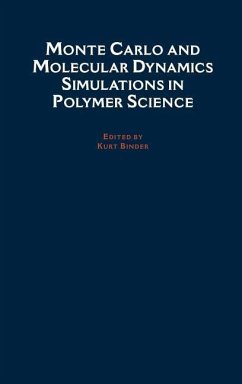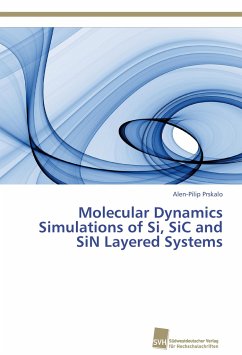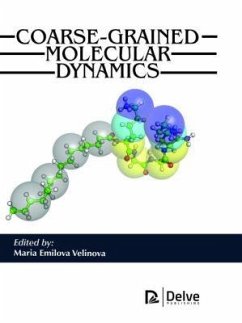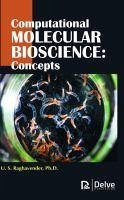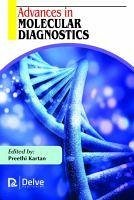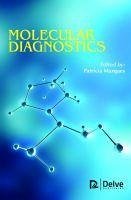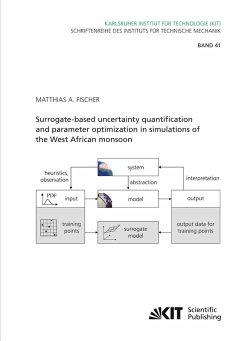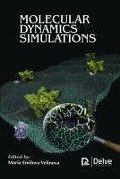
Molecular Dynamics Simulations
Versandkostenfrei!
Versandfertig in über 4 Wochen
155,99 €
inkl. MwSt.

PAYBACK Punkte
78 °P sammeln!
Molecular dynamics method is a numerical statistical mechanics technique for integration of the equations of motion for a many-particle system. The particle-particle interactions and the energy are quantified using the potentials and parameter sets of molecular-mechanics force fields. The resulting trajectories can then be used to evaluate various time-dependent structural, transport and thermodynamic properties of the system.In this book, Molecular Dynamics Simulations, it is presented the state-of-the-art in the field, from both a methodological and application perspective. The book begins w...
Molecular dynamics method is a numerical statistical mechanics technique for integration of the equations of motion for a many-particle system. The particle-particle interactions and the energy are quantified using the potentials and parameter sets of molecular-mechanics force fields. The resulting trajectories can then be used to evaluate various time-dependent structural, transport and thermodynamic properties of the system.In this book, Molecular Dynamics Simulations, it is presented the state-of-the-art in the field, from both a methodological and application perspective. The book begins with a brief introduction of the molecular dynamics simulations formalism. Important definitions and terminology, used later in the book, have been explained. For example, terms as integrators, SHAKE (or LINCS) algorithm, periodical boundary conditions, cutoff, ensemble and many others are considered in the introduction.Molecular dynamics simulations are suitable for describing of systems with extensive number of degrees of freedom such as the biologically relevant targets. The next parts contain collection of articles, which illustrate the computer experiments using molecular dynamics simulations in the studies of synthetic and biological macromolecules. The topics covered of this book include: molecular dynamics simulations of biological membranes, proteins, polymers, peptides, and nanotubes.



